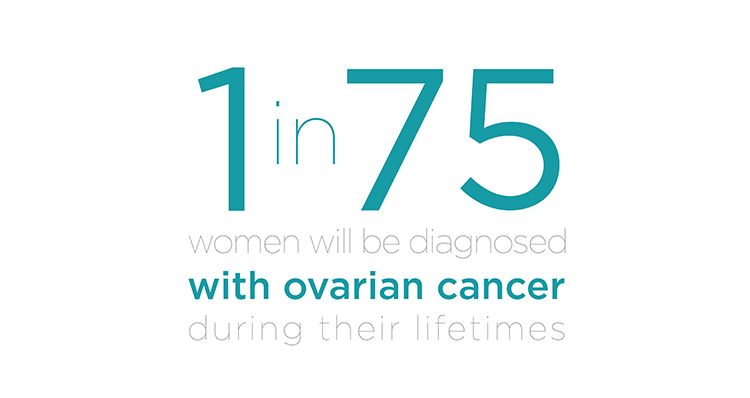My mom was diagnosed with ovarian cancer May 29, 2015. She died 12 days later. The swiftness of the disease and after-shock left me reeling, even to this day, but unfortunately the harsh reality was my mom knew something was wrong for quite a while and chose to keep that information to herself. Fear and denial are our enemy and friend to cancer.
According to the American Cancer Society ovarian cancer is the ninth most common cancer & the fifth leading cause of cancer death of women, after lung, breast, colorectal and pancreas cancers. Ovarian cancer causes more deaths than any other cancer of the female reproductive system. Treatment works best when ovarian cancer is found in its early stages. However, early stage ovarian cancer rarely causes any symptoms. Advanced stage may cause a few symptoms but can be nonspecific and are often mistaken for more common benign conditions such as constipation or irritable bowel.
Signs & symptoms may include:
- Abdominal bloating or swelling
- Quickly feeling full when eating
- Weight loss
- Discomfort in the pelvis area
- Changes in bowel habits such as constipation
- A frequent need to urinate
- Vaginal bleeding or discharge from vagina that is not normal for you
The causes of ovarian cancers are unknown, but there are theories about the causes. For example, some researchers think there may be some relationship between ovulation and the risk of developing ovarian cancer. Tubal ligation and hysterectomy lower the risk of ovarian cancer with the theory being that some cancer-causing substances enter the body through the vagina and pass through uterus and fallopian tubes to reach the ovaries. Another theory is that male hormones (androgens) can cause ovarian cancer. There has been tremendous progress by researchers in understanding how certain mutations in DNA can cause normal cells to become cancerous.
While we do not know the exact cause of ovarian cancer, certain factors may increase the risk:
- Age, ovarian cancer can occur at any age but is most common in women ages 50 to 60 years
- Inherited gene mutation, women with the breast cancer gene 1 and breast cancer gene 2 (BRCA1 & BRCA2) are also known to have increased risk of ovarian cancer as well as the gene mutation the causes Lynch syndrome associated with colon cancer
- Family history of ovarian cancer
- Estrogen hormone replacement therapy
- Age when menstruation started and ended
- Never being pregnant
- Fertility treatment
- Smoking
- Use of an intrauterine device
- Polycystic ovarian syndrome
When ovarian cancer is found at an early stage there is a greater than 92% 5-year survival rate. The best opportunity to find ovarian cancer at an early stage is regular pelvic exams. The physician can feel the ovaries for size, shape and consistency. There has been a lot of research to develop a screening test for ovarian cancer without much success yet. There are two tests commonly used; transvaginal ultrasound and the CA-125 blood test. Hopefully improvements in screening tests will, one day, lead to a lower ovarian cancer death rate.
If you have a family history of ovarian cancer or breast cancer, talk to your physician about your risk of ovarian cancer. Your physician may refer you to a genetic counselor to discuss testing for the gene mutations that increase the risk of ovarian cancer. If you have any of the signs or symptoms make an appointment to see your physician. Don’t be a friend to cancer.
To learn more about Ovarian Cancer or National Cancer Awareness Month, please visit the American Cancer Society or National Ovarian Cancer Coalition today.





